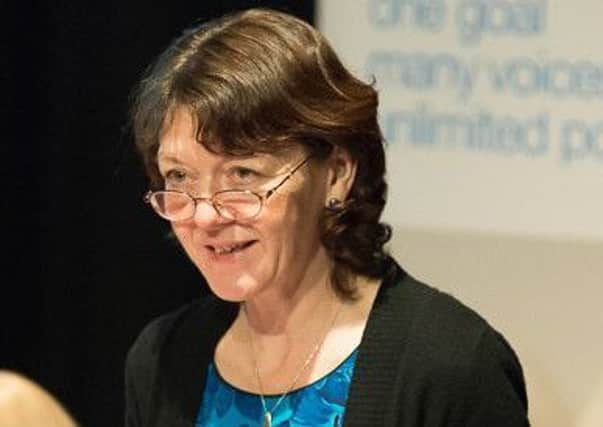Frances Simpson: Mental illness remains a barrier to physical care


This anomaly is not because of mental ill-health but due to undiagnosed or untreated physical conditions such as heart disease and diabetes.
Equally Fit was an ambitious attempt, not just to encourage our health professionals to take urgent action to address this issue for patients, but also to put pressure on our political decision-makers to recognise the discrimination faced by people whose mental illness presents barriers to them receiving good, timely, effective care.
Advertisement
Hide AdAdvertisement
Hide AdOver this past year, the project – a collaboration between Support in Mind Scotland and Bipolar Scotland – has gathered the views of patients and health professionals across Scotland. What has been abundantly clear is that no-one in our health services is unaware of the problem. There is also clear recognition that achieving parity between physical and mental health should be a nationwide priority.
Where there has been less consensus, however, is in how far good local solutions really address the deep-rooted inequalities that exist within our health system so that mentally unwell patients can expect the same level of care for their heart condition or diabetes as someone who does not have such a diagnosis – and expect this wherever they live in the country.
Essentially, Equally Fit has attempted to present this as a rights issue, bringing about change in the attitude and approach of health professionals, rather than as a lifestyle issue, based on behaviour change in individuals.
To underpin this rights issue, Equally Fit has produced a Charter of Rights and Actions for Change – a document that brings together the collective views and experiences of more than 150 people with lived experience of accessing health care for physical illness with their recommendations of what would have improved their experience.
Included in this list of rights is the right to be as physically well as possible and not to have to just ‘make do’; the right to be listened to when they raise concerns about symptoms or changes that are abnormal; and the right to be fully involved in decisions about their treatment, including the right to advocacy support for those times when they lack capacity to make decisions on their own.
These rights are hardly revolutionary, and for those who have never experienced the dismissive attitude of some health professionals who do not understand mental illness, it may seem hardly credible that such a charter is needed. Sadly, it is.
However, over the year, we have been greatly encouraged by the considerable support from many professionals within the NHS who know that these barriers exist and who want to work with us to effect change.
Among the most supportive has been the Scottish Patient Safety Programme (SPSP) team, whose staff have opened up access to hundreds of health professionals across the country for the Equally Fit message.
Advertisement
Hide AdAdvertisement
Hide AdSPSP is a major NHS programme looking at safety in its widest sense, and one area of focus is mental health services. The aim of the programme is to support frontline staff to test, evaluate and reliably implement new interventions before rolling them out across their health board area. This pro-active sharing of good practice is strengthened by learning events that bring staff together, not just to listen and learn, but take new procedures and ideas back to their own workplace.
Attending one such event in Inverness recently it was impressive to see staff tackling day-to-day issues with a very solution-focused approach and implementing seemingly small procedural changes that had a transformative impact on the quality of care being provided to individuals.
Physical health is one of the priority areas for the SPSP and the Equally Fit Charter and Action Plan is being promoted by the SPSP as an example of what staff can do to improve care and promote safety.
This support is hugely significant for us as it allows us to work with frontline staff to make that shift from focusing on changing individuals’ lifestyle choices, to changing day-to-day procedures and process that ensure that every patient receives the best possible care and treatment when and where they need it – no matter what diagnosis they come into hospital with. If you wish to receive a copy of the Charter please contact [email protected] or call 0131 662 4359. l Frances Simpson, CEO Support in Mind Scotland.